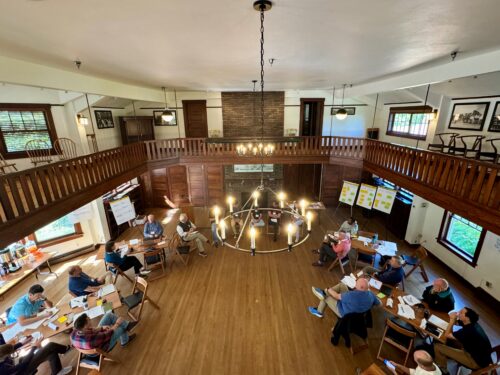“A thing is right when it tends to preserve the integrity, stability, and beauty of the biotic community. It is wrong when it tends otherwise.” Aldo Leopold
How will the engineering community adapt to the rapidly changing world of water management? Are we content to keep responding incrementally or will we rise to the challenge of fundamentally rethinking how we engage with water? How can a new water ethic be part of a national movement driven by local solutions? Those were the questions posed by Dave White of Arizona State University and Sarah Robinson of the U.S. Water Alliance as they kicked off the April 8 virtual preview portion of Engineering Change Lab – USA’s (ECL) Envisioning a New Water Ethic for the Engineering Community Summit.


